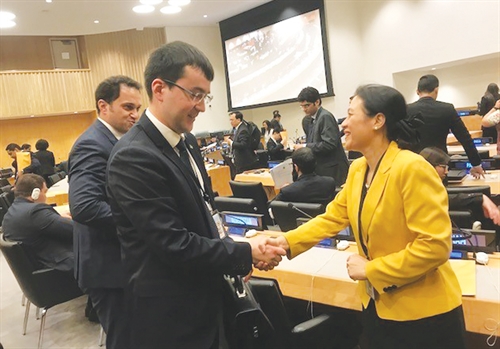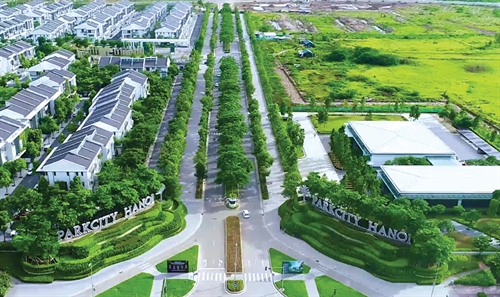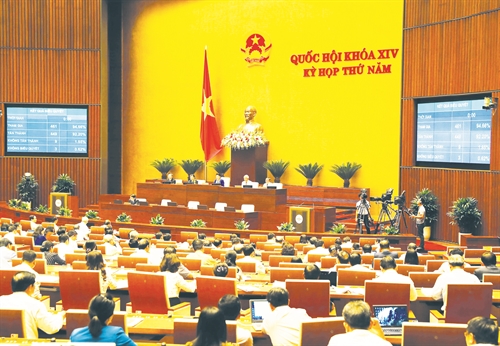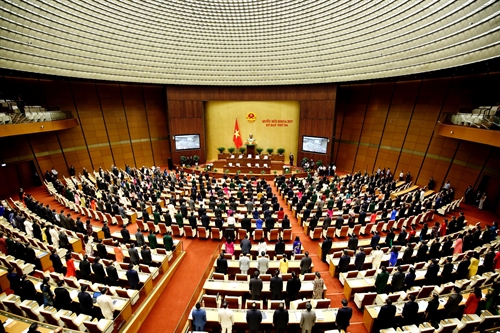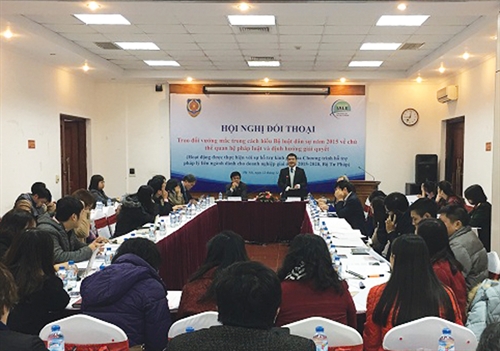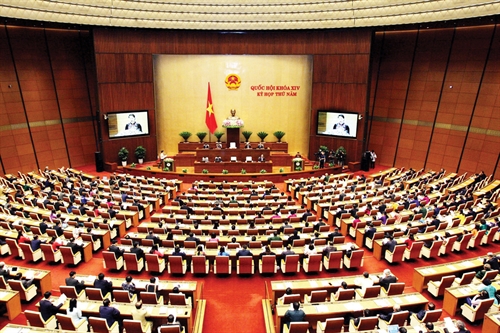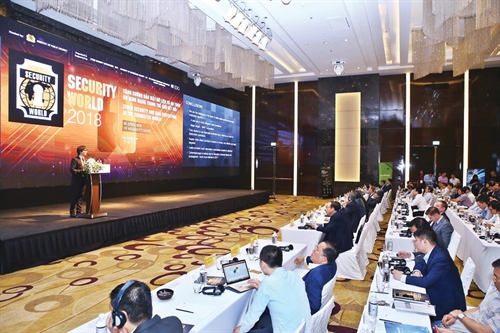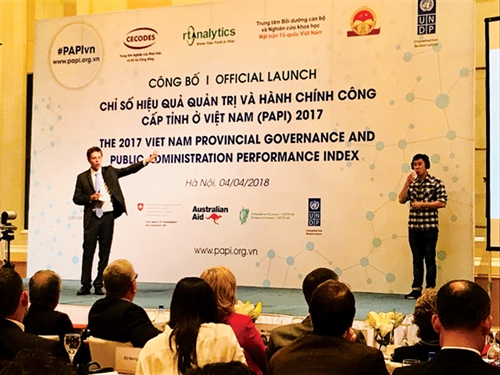Phan Duc Hieu, Tran Trung Hieu & Le Phuong Nam[1]
The Competition Law that came into force on July 1, 2005, was the very first important milestone in the process of creating a legal framework for fair competition in Vietnam. Unfortunately, both domestic and international business environments have been changing significantly since the promulgation of the Law in 2004. There is strong demand for Vietnamese companies to participate deeply in new global value chains. The 4th Industrial Revolution has facilitated the emergence of new business models that the current Competition Law fails to regulate. Those business modes have changed the market structure and directly affected competition. Therefore, comprehensive revision of the 2004 Competition Law is practically necessary to not only overcome its limitations and shortcomings but also take full advantage of opportunities of economic integration as well as the 4th Industrial Revolution.
Principles for revision of the 2004 Competition Law
The Competition Law was revised according to the following objectives:
(i) To realize the principles of competition enshrined in the 2013 Constitution
The 2013 Constitution has recognized, for the first time, competition as a foundation for development of the business legal framework, including the competition law. Article 51 of the Constitution stipulates: “Vietnam’s economy is a socialist-oriented market economy with various forms of ownership and sectors in which the state sector plays a key role. All sectors are important components of the economy. All entities of all sectors are treated equally and compete in accordance with law.”
To confirm the role of competition as a “foundation of the market economy”, revision of the 2004 Competition Law aimed ultimately at “maintaining and ensuring fair and effective competition among enterprises.” In other words, the revision aimed at creating a fair competition environment that ensures equal opportunities to compete in the market without giving bias to any specific enterprise or group of enterprises.
(ii) To streamline procedures and litigation proceedings
The new Competition Law is intended to ensure fairness, transparency and objectivity in applying competition procedures. This means that the principles of fairness, transparency and objectivity have been seriously taken into consideration in designing administrative procedures from filing and investigating to handling competition cases. As a result, it is expected that market players will really trust and apply the competition law as a tool to protect their legitimate rights and interests.
(iii) To adopt best international practices on economic analysis of competition
International experiences show that the competition law is used as a means by the state to regulate competitive acts on the basis of combining legal and economic thinking and analysis. Regulations on market share and economic concentration are developed based on economic analysis and assessment of competition. In the process of dealing with competition cases, apart from per se rule of law, competition authorities are also required to use economic analyses to handle those cases. The new Competition Law is revised with the aim to incorporate both legal and economic theories into the law. Best practices from both developing and developed countries have been used as a source of international experiences.
Major changes of the new Competition Law
 |
| Industry and Trade Ministry representatives take a look at Vietnamese Tra catfish sold at AEON supermarket in Japan__Photo: Thanh Huu/VNA |
Expanding the scope of application
Reality shows that there have been recently economic activities such as agreements or mergers and acquisitions in other countries that had impacts on competition in the Vietnamese market. For example, agreements stipulating fees and shipping costs between large foreign shipping lines have affected Vietnamese exporters and importers. Recent M&A transactions between two companies of which one company has its subsidiary in Vietnam was supposed to have negative impacts on competition in the Vietnamese market[2]. Unfortunately, the 2004 Competition Law only regulates “restricted and unfair competition practices...” conducted by “business organizations and individuals ... including ... foreign entities which are operating in Vietnam”. Therefore, there is no legal basis for handling competition cases which occur outside Vietnam but have negative impacts on the competition environment of Vietnam as above mentioned.
In some countries such as the United States, Canada, Australia, New Zealand, EU, Japan, South Korea and Singapore, competition authorities have recently investigated and handled a number of competition cases in relation to restricted-competition agreements and cross-border economic concentrations. Typically, these are agreements for fixing air freight charges between more than 20 major airlines in the world or the merger between Western Digital and Hitachi and between Samsung and Seagate which are all well-known hard drive manufacturers.
Therefore, in order to protect the competition environment in Vietnam, the new Competition Law extends its scope of application to “restrict competitive acts and economic concentrations that have a negative impact or are likely to have a negative impact on the competition in Vietnam (Article 1).
The expansion of the scope of application will bring about some positive effects as follows:
• Firstly, creating a legal framework for investigating and dealing fully with all anti-competition acts, no matter where it occurs, that may have negative impacts on the Vietnamese market. The timely handling of cross-border unfair competition acts contributes to economic stability by stabilizing production factors like inputs and outputs of the economy.
• Secondly, creating a legal basis for Vietnam’s competition authorities to cooperate with foreign counterparts in the process of investigating and handling competition cases in order to implement commitments under bilateral and multilateral trade agreements to which Vietnam is a signatory party.
Expanding subjects of application
Competition is an inevitable rule of the market economy and plays as an engine of economic development. The competition law and competition policies are essential legal foundations for competition. In theory, all players should be subjected to the competition law regardless of economic sectors. This principle has been constitutionalized: “Players of any economic sectors shall cooperate and compete equally under law” (Article 51.2 of the 2013 Constitution).
Unfortunately, one shortcoming of the 2004 Competition Law is that the law did not apply to certain organizations, mainly state authorities at various levels. For example, local state management agencies sometimes make decisions that restrict competition by requesting organizations and individuals within their locality to use products and services of a specific enterprise. In order to overcome this shortcoming, the new Competition Law will apply to all domestic and foreign organizations and individuals involved in competitive activities in the market, as clearly stipulated in Article 2 as follows:
“1. Business organizations and individuals (hereinafter referred collectively to as enterprises), including also enterprises producing, supplying products, providing public services, enterprises operating in the State-monopolized sectors and domains, public administrative units and foreign enterprises operating in Vietnam.
2. Professional associations operating in Vietnam.
3. Related domestic, foreign agencies, organizations and individuals.”
Expanding subjects of application of the new Competition Law to include state agencies, public administrative units and individuals who are responsible for making administrative decisions, etc... will bring some benefits as follows:
• Firstly, preventing state management agencies from making administrative decisions and interventions which may harm competition in the market. As a result, it will minimize the possibility of providing competitive advantage for one enterprise or a group of enterprises over others by administrative decisions of the authorities.
• Secondly, supporting recent efforts of the Government in creating and promoting an enabling, fair, non-discriminatory and competitive business environment.
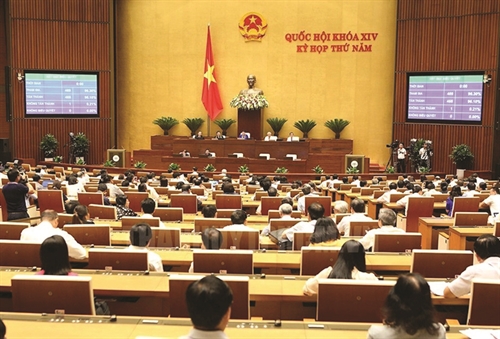 |
| The amended Competition Law is passed on June 12 with 95.28 percent of votes for and will come into force on July 1, 2019__Photo: VNA |
Restricted competition agreements
The new Competition Law has adopted best international practices as well as an economic analysis approach in designing its provisions on restricted competition agreements. This is expected to enhance accuracy, efficiency and effectiveness in enforcing the Law. Following are significant changes of the new Competition Law in relation to restricted competition agreements:
• Per-se definition of market shares was abolished as the only criterion for controlling restricted competition agreements. Restricted competition agreements are now judged by nature, effect or likelihood of restricting substantially competition (Article 11).
• Restricted competition agreements will include horizontal and vertical agreements (Article 12.3).
• Leniency program is applied to enhance the ability to detect and investigate restricted competition agreements (Article 115).
Abuse of market dominance and monopoly
Compared to the 2004 Competition Law, the new Law has the following amendments:
• Adding criteria to determine the significant “market power” in a more comprehensive and appropriate manner that accurately reflects the position of the firm and competitive practices in the market (Article 27.1).
• Abuse of dominant position is defined and explained in depth by practices emphasizing consequences and effects of anti-competitive behaviors (Article 28). This is to overcome the limitation of the 2004 Competition Law that only described contexts without resorting to nature of behaviors, making it difficult to enforce the law.
Control of economic concentration
Compared to the 2004 version, the new Competition Law adopts a new approach of economic concentration control by empowering the competition authority to assess competitive impacts of economic concentration and enterprises are encouraged to proactively notify economic concentration to the competition authority. The new Competition Law provides more criteria to use in assessing an economic concentration case. Following are significant changes:
• Total assets, total turnover, and value of transactions are criteria for enterprises to determine whether a transaction is subject to notification of economic concentration (Article 34.2).
• The National Competition Commission is required to take into consideration various factors such as market structure, level of concentration, likely significant negative and positive effects on the economy in order to make assessment of an economic concentration. An economic concentration will be prohibited if the combined market shares of enterprises participating in the economic concentration account for over 50% on the relevant market, according to the 2004 Competition Law.
• By changing the threshold level for economic concentration notification and changing the criteria for assessing economic concentration, Article 32.1 of the new Law extends the scope of control to include both vertical and horizontal agreements instead of just controlling horizontal agreements as previously.
Unfair competition practices
The new Competition Law has a number of changes related to its provisions on unfair competition practices as follows:
• Firstly, unfair competition behaviors that are already regulated by other laws such as misleading indications, unfair-competition advertisement and promotions (clearly stipulated in the laws on intellectual property, advertisement ...) will not repeated in the Law in order to avoid overlapping and conflict.
• Secondly, the Law has removed provisions such as “illicit multi-level sale” and “discrimination by associations” because they are not unfair competition practices by nature.
• Thirdly, the Law adds “illicit customer enticement” as a new unfair competition practice in order to comply with the definition of unfair competition stipulated in Article 3.6 of the Law.
• Fourthly, the Law has simplified procedures of investigating and handling unfair competition cases by abolishing the preliminary investigation procedure and shortening the time limit for formal investigation from 90 days to 60 days.
The above-mentioned changes introduced by the new Competition Law are expected to control precisely unfair competition activities, avoid regulatory conflict or gap as well as enhance effective enforcement of the Law.
The competition authority
The new Competition Law is added with provisions to enhance independence and capacity of the competition authority in order to ensure effective enforcement of the Law. Accordingly, the national competition authority is established by merger of the Competition Council and Competition Authority into the National Competition Commission. The Government will stipulate in detail the legal status, role, functions, tasks and organizational structure of the Commission.
The enactment of the Competition Law by the National Assembly on June 12, 2018, is an important step in promoting economic development, facilitating economic integration and taking advantage of the 4th Industrial Revolution. The Law has adopted a number of best international practices on pro-competition policies. The National Competition Commission will be established with the role and function that are expected to enforce the law efficiently and effectively. On the other hand, the Commission is strongly required to acquire capacity and expertise sufficient to discharge its given role and function. There may be a significant challenge for the Commission to operate independently and objectively as a body under the Ministry. Training and education about awareness of the importance of competition are very important for the new Law to be enforced thoroughly and effectively.-
